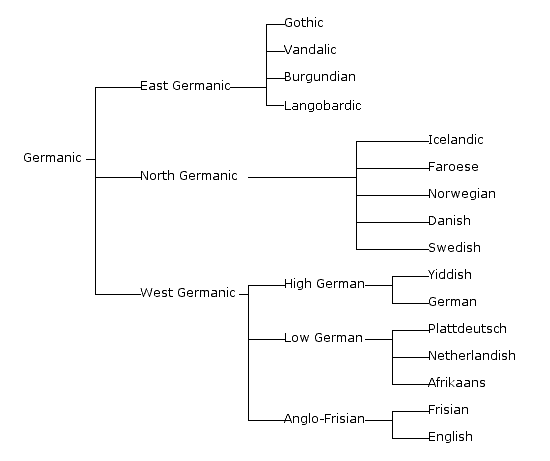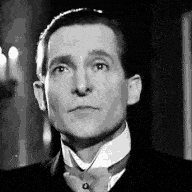0

















| Thumbs Up |
| Received: 1,296 Given: 3,160 |

This has always puzzled me, a few questions really:
- How did the Germans form from groups speaking different languages (Low Saxon and High German + others)?
- Are Low Saxon and High German actually languages or simply very strong dialects?
- How did the German identity form when divided between Low Saxon and High German-speaking areas? To an English person this is pretty unusual since we formed with one language and usually different languages lead to divisions, how did the Germans put aside these divisions and unite as one? Was it due to the spread of High German into North Germany?
- Why aren't Austrians or Swiss Germans universally regarded as Germans? Is it simply borders that separates you or actual ethnic divisions?
- How did the Dutch emerge as a single ethnicity when there were three languages (Low Franconian, Netherlands Saxon and Frisian) in the country? Was it due to outside aggression or what else triggered the split of the Dutch from the North Germans?
- Were Germans in the middle ages simply a collection of former Germanic tribes and ethnicities?















| Thumbs Up |
| Received: 1,296 Given: 3,160 |

Ah, just got a answer to much of this: http://en.wikipedia.org/wiki/Dachsprache#Dachsprache
but questions 1,4,5 and 6 I still don't know.














| Thumbs Up |
| Received: 24 Given: 12 |

If you'd be really interested in this you could have found the answers to your questions on the internet.
You should keep in mind that Germany and the Netherlands consisted of different tribes, and didn't the English language derive from German? (not as it is spoken right now but waaaaay back).















| Thumbs Up |
| Received: 1,296 Given: 3,160 |

Don't you think I've looked? And besides, evidence I have is that link I posted on the languages just a while ago.If you'd be really interested in this you could have found the answers to your questions on the internet.
Besides, this is the internet.
Yes, as did England. The original tribes of England spoke dialects of Anglo-Frisian and so I suppose it was easy for that them to develop one rather unified language, Old English.You should keep in mind that Germany and the Netherlands consisted of different tribes,
OE was still intelligible (with practice) with Old Danish, so when the Vikings settled there wasn't too much difficulty there either. But I did wonder about Low Saxon and High German, whether the case would be similar with those.
Look at this simplified diagram, Low Saxon and High German are even on separate branches (but then again Old English and Old English are too I suppose)

A lot of people say that, English developed (along with Frisian) from the Anglo-Frisian branch of Germanic, which in turn had developed from West Germanic, with German developing onto a separate branch and Low Saxon being on the same branch as Dutch (as shown above).and didn't the English language derive from German? (not as it is spoken right now but waaaaay back).
Maybe the Germanic languages didn't differ that much to be totally different.












| Thumbs Up |
| Received: 209 Given: 189 |

The few remains of Langobardic show a WEST Germanic language with High German features like Bavarian.















| Thumbs Up |
| Received: 1,296 Given: 3,160 |















| Thumbs Up |
| Received: 8 Given: 0 |

1. What you're looking for is the High German consonant shift which happened between the 3rd and 5th century AD and only affected High German.
2. Still Old Low German (or Saxon) in the beginning rather was a strong dialect than a separate language. Of course that changed as time moved on and spatial distance from each other grew, especially considering the Dutch and English language. But even today as a native German speaker you can read and understand Dutch rather well, allthough when spoken it's very hard to understand without having learned the language.
3. The divide wasn't that strong that people couldn't understand each other any more, so you should consider the division within West Germanic more as one of different dialects than different languages. Hence, the divisions between subfamilies within German are rarely precisely defined, as most form continuous clines, with adjacent dialects being mutually intelligible and more separated ones not.
High German began to dominate the German speaking lands in the Middle Age via literature. The southern German lands were more developed and had more monasteries and they gave away some of their copied scrolls to monasteries all over Germany. Most of those copied texts were in Latin of course, but some were in local High German and therefore influenced the record of the German language significantly.
Of course the common people in northern Germany still spoke their Low German dialect, but in written texts High German became dominant during the Middle Age and set the standards.
4. Well, Austrians are considered Germans, just with their own state.
In the times of the Holy Roman Empire and even afterwards Austrians were always considered to be German.
The age of reformation however created a new north south divide in Germany, religious wars broke out and later favoured the rise of protestant Brandenburg-Prussia. Prussia challenged the traditional German hegemonial power Austria within the confederation of the German speaking lands. In the end Prussia won and unified Germany excluding Austria and its non-German speaking Habsburg possessions from it.
You can read more detailed about it here.
But even after the Habsburg Empire was created leading to the Austro-Hungarian Monarchy the relations between Austria and Germany were very close and still are to this day. After all we've always fought side by side in the World Wars.
After WW2 there was a tendency in Austria to separate more from Germany and to pronounce the differences in an unhistorical way. But even despite these cultural separation campaigns most Austrians know that they’re Germans, just with a separate state, but our history is closely linked to each other.
The story with Switzerland is different because they broke away quite early from the Holy German Empire in the Late Middle Age already. So the cultural distance is more pronounced and Switzerland also got a significant Italian and French speaking population.
6. Yes, in the Dark Age and Early Middle Age the Germans consisted out of tribes, namely the Franks, the Alemanni, the Saxons, the Bavarians, the Thuringians and some minor ones. But with the establishment of the Frankish rule, the tribes were incorporated and later formed East Francia in the 9th century AD.
Last edited by Winterwolf; 05-07-2011 at 11:09 AM.














| Thumbs Up |
| Received: 140 Given: 0 |

Germany is an artificial union of at least two distinct language families.















| Thumbs Up |
| Received: 8 Given: 0 |

I guess those baseless claims of yours are nothing but trolling. It's not even funny, just silly.
It’s time to go to bed and to stop wasting my time.

















| Thumbs Up |
| Received: 34,729 Given: 61,129 |
There are currently 1 users browsing this thread. (0 members and 1 guests)
Bookmarks